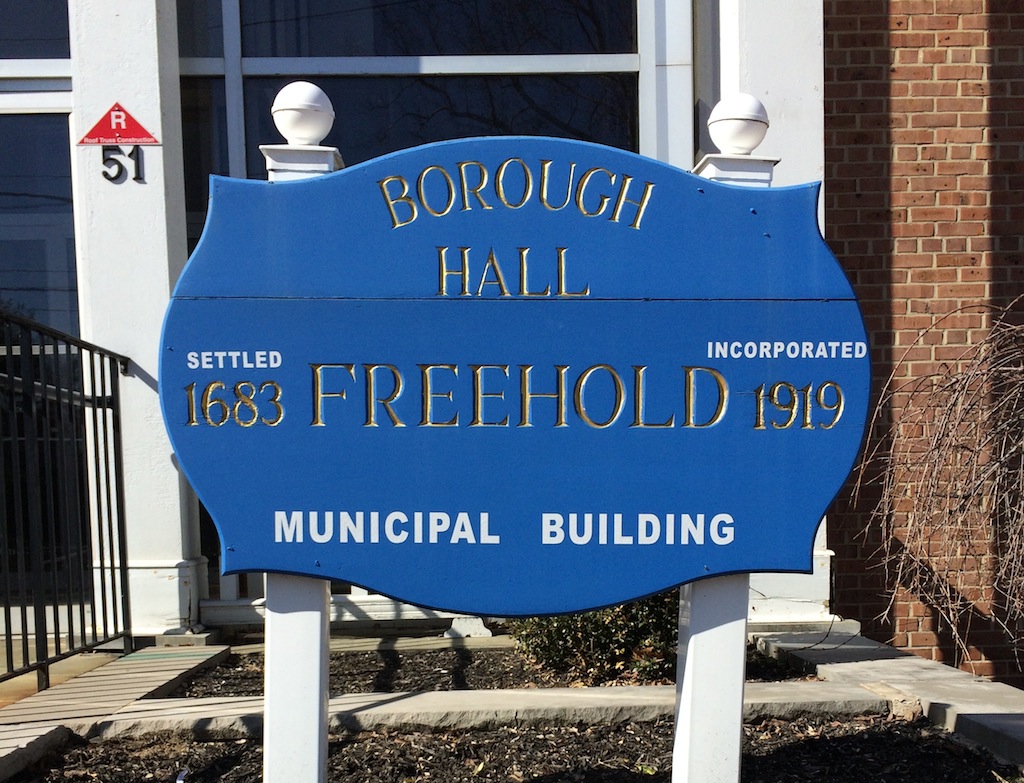FREEHOLD – The Freehold Borough Planning Board has denied granting a use variance for an applicant to develop a shopping plaza at the intersection of Park Avenue and West Main Street.
Park Avenue is also known as Route 33, a state highway, and West Main Street is also known as Route 537, a Monmouth County road.
On June 13, board members voted 4-3 to grant use variance relief to CT95-CT07 200 PARK LLC and DT95-DT07 PARK LLC (TFE Properties) to construct a shopping center at 200 Park Ave. Although a majority of board members voted in favor of granting the use variance relief, five “yes” votes are required to approve a use variance and therefore the application was denied.
The board’s vote on the application followed hearings on March 14 and March 28. Attorney Donna Jennings presented the application on March 14 and June 13, and attorney Steven Tripp presented the application on March 28, substituting for Jennings.
The proposed 11,000-square-foot shopping center was planned on the property previously occupied by the Grace Lutheran Church. The vacant building that had been used by the church would have been demolished if the shopping center was approved.
The property at 200 Park Ave. is zoned residential and a use variance was needed for the commercial use of the shopping center to be approved. In order for the use variance to be granted, the applicant had to demonstrate the project would not have any substantial detriment if approved and that positive aspects outweighed any possible negative aspects of the development.
Residents who live near the intersection expressed concern about the conversion of the property from a house of worship to a commercial use, citing potential increases in traffic, safety issues and pollution at the intersection, among other possible negative impacts if the shopping center was approved.
Representatives of the applicant testified the shopping center would add slightly more than a 2 percent increase in vehicles and be a benefit to the community by being convenient to homes within walking distance of the property and motorists passing by the location.
After a motion was made to grant use variance relief, board Chairman Adam Reich and board members William Barricelli, Cornelius Begley and Paul Ceppi voted “yes.” Board members Michele Gibson, Garry Jackson and Annette Jordan voted “no.”
“I think it would be a benefit to the town to develop this corner as a commercial interest,” Barricelli said. “I think the developer showed an interest in working with a lot of people to present a nice package that would be attractive to the town as well as his business interest. The town is full of traffic and noise, no more traffic will be generated by this proposal than anything else.”
“I think some of the side arrangements are helpful,” Ceppi said. “I think (outstanding issues) could be worked out …”
“I think the applicant has met the positive and negative criteria in order to make an argument to have this use variance granted with discussions and amendments and design standards,” Reich said. “If given approval with concessions of time and limitations to uses, I would be inclined to vote for a positive resolution.”
Jackson, Jordan and Gibson found that the positives of granting the use variance did not outweigh the negatives.
“There is a reason people buy a single-family detached house in a [residential] zone,” Jackson said. “They are buying a lifestyle. We put up with certain things in [residential] zones during the daytime [like] lawn mowers, leaf blowers, mail trucks, but when the evening comes, the expectation changes and we don’t want to hear those things. I think this would have a negative impact on the people [who] live in the area.”
“I don’t object to development, but this corner is a gateway to Freehold, a corner where it needs to reflect upon who we are and what our town stands for,” Jordan said. “I am hung up on the traffic aspect and don’t believe it is going to be a minimal impact at that corner. I don’t feel [the applicant] has met the negative criteria.”
“I am concerned about what precedent we would set by granting these variances,” Gibson said. “If you are able to take this lot and convert (it to commercial) … I fear we would have a greater effect on the town in the future. I don’t think this is something the town needs at this time and the negative criteria outweighs the positive for this application.”

